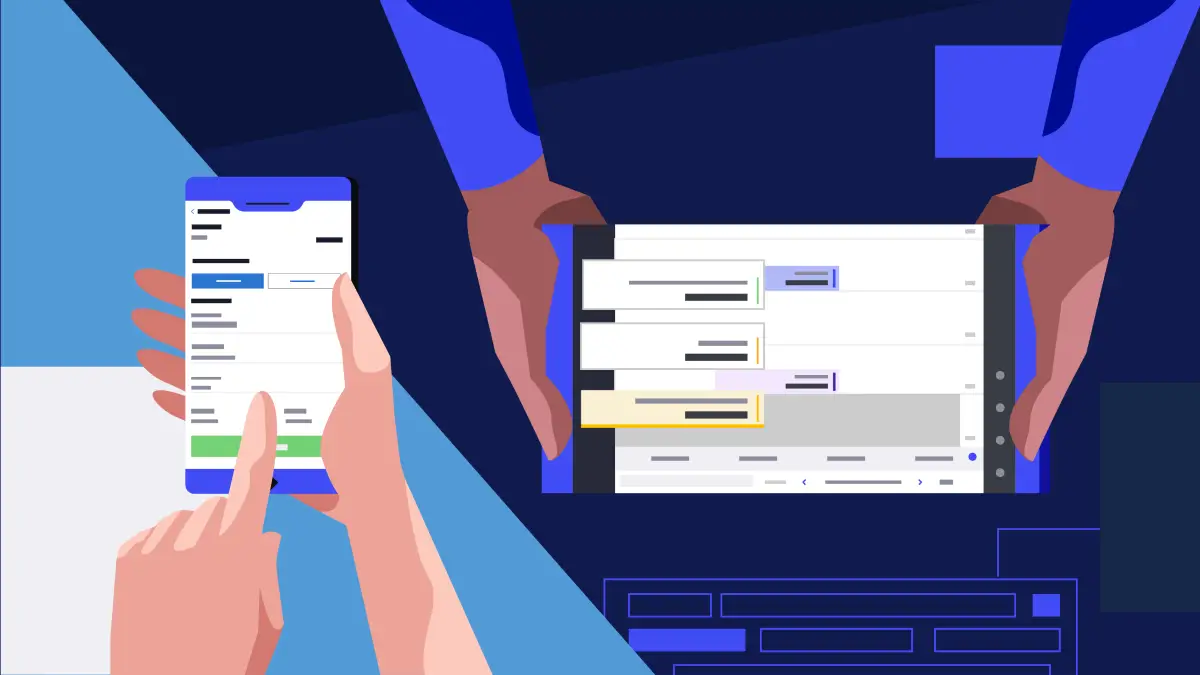
Starting out as a new coach can feel overwhelming. With so many experienced trainers and established programs, it’s easy to feel unnoticed. However, standing out

It’s no secret that technology has been a catalyst for change across all industries, but the impact within the world of sports and fitness can’t be understated. Wearable tech provides athletes with deep insights into their health, recovery and performance. Virtual Reality gives sports enthusiasts an in-game experience from the comfort of their own homes.
Our digital world is at our fingertips, with nearly half of the world’s population owning a smartphone. This means it has become imperative that sports event organizers meet their athletes, parents and staff where they are: on their mobile devices.
The use of mobile apps has become increasingly popular to enhance camp, clinic and event experiences. For attendees, mobile apps have created opportunities to seamlessly register for events, stay up to date on information, provide feedback and more. In-event apps can effectively communicate schedules and announcements to all attendees without the need for a microphone and a stage. But mobile apps are equally as valuable from an event planning and production standpoint.
Mobile apps are a powerful way for event organizers to streamline their tedious administrative tasks and re-devote their time to designing their programs and elevating the athlete experience. Rather than have messy piles of paperwork with inevitable missing information, a mobile registration will ensure all required information is collected and stored for event day.
Furthermore, mobile apps provide event planners with data that has the potential to drive revenue and future growth. To unlock those insights, however, you first must understand how to maximize the use of a mobile app at your event.
Here are four ways that mobile apps can drive revenue at sports events.
First, mobile apps provide a frictionless check-in experience by allowing event organizers to quickly check in attendees as they arrive at the facility. This is especially important when hosting a large camp or clinic with many athletes.
In addition to ease of check-in, any waivers, forms, or other documentation can be collected upon registration and securely stored within the mobile app, eliminating the time-consuming communication and liability associated with tracking down missing paperwork.
By automating and simplifying the registration and check-in process in the most secure way possible, you can improve attendee growth and consequently, event revenue.
Additionally, the time saved by using a mobile app to handle the tedious administrative tasks of collecting waivers or keeping track of event rosters offers event organizers the opportunity to refocus their time and energy on creative thinking and event programming.
Not only do mobile apps provide an easy way to check athletes in, but they also allow for greater flexibility and security in collecting payments. With fewer hands and eyes seeing sensitive information, you will put more customers at ease.
If you are accepting cash and check as a payment method, those transactions can be documented through the mobile app as attendees arrive and will be reflected in your financial reports. Likewise, should an attendee arrive at an event before he or she has paid with a credit card, a mobile app will allow you to process that payment directly.
A mobile app will clearly denote which attendees are missing forms or payments, allowing you to easily follow up and reconcile without a need to make a note or send an e-mail.
This flexibility in payment processing will provide a high-quality user experience, while also ensuring you don’t lose out on revenue due to missed or forgotten payments. Having a pulse on your financial status will help you keep track of your finances and make smarter business decisions that will impact future events, such as when to make price adjustments or add an additional camp to your calendar.
In addition to managing client information, a mobile app can also aid in managing your staff and resources. Events have many moving parts, and the ability to stay organized is imperative to overall event success.
A strong mobile app will provide a high-level overview of your event, including your staff members and resources (i.e., gyms, courts, fields, etc.). This will allow event organizers to efficiently maximize the use of their facility, consequently maximizing revenue opportunities.
A mobile app will also prevent any double-booking oversights, as well as guide you to turn any unused spaces into revenue opportunities, without adding a single square foot.
Similarly, event organizers can increase staff autonomy through use of a mobile app. Whether you are managing five staff members or 25, a powerful mobile app will make your staff more aware of their schedules and allow them to view upcoming event and session details at their fingertips.
In addition to managing staff schedules, some mobile apps also have integrated payroll capabilities, ensuring your staff is paid for the sessions they are leading.
The ability to execute a well-run event will not only improve staff productivity and experiences, but it is also critical to delivering a high-quality experience to attendees that encourages repeat attendance, increased interest and more revenue.
A mobile app also becomes important from an event analysis perspective, as it allows event organizers to gain deeper insights into the health and future of events. If all your registrations and event details are in one centralized platform, you will be able to track historical participation info, view customer information, open slots for registration, assign numbers for attendees if needed and analyze demographic information based on that data. This will also make future camp registrations smoother.
Detailed analytics reports within a mobile app will allow event managers to monitor growth, attract new sponsors and attract potential new teams and athletes to future events. Mobile apps can give you access to important reporting information such as revenue, payment methods, athletes, transactions and more. As with the ability to process payments, these reports will show you where you are missing information or payments, which events are bringing in the most revenue, how many athletes are on your rosters and more, right at your fingertips.
Mobile apps can also unlock powerful insights that empower decision making for future events. Depending on which events attract the most athletes, or which events bring in the most money, you can make informed business decisions about adding additional camps, clinics, or events. For example, if an event has consistently performed well, you may consider raising the prices to accommodate hiring additional staff or securing more resources.
Reporting capabilities will allow you to examine which areas of the event were successful and which imposed roadblocks to success in the future.
To put it simply, execution matters. To produce successful, high-quality events, it’s important to embrace digital to improve both the attendee and event organizer experiences.
By saving time, energy and resources through using a mobile app to manage the administrative side of your events, you will be able to reinvest in other parts of your camps or clinics, such as awards for attendees, more thought-out programming or bringing on additional trainers. Not only does this lead to more satisfied attendees and parents but it also improves the efficiency of your events.
As the world invests more heavily in technology, it becomes apparent that sports and fitness businesses need to leverage technology at camps, clinics or events. From the first impression to the last, mobile apps provide a powerful way to manage the administrative side of event planning and make smarter business decisions that grow your bottom line and increase opportunities for young athletes.
See why studios, gyms, and academies trust Upper Hand to execute sports and fitness events.
This article was originally published by Sports Destinations Management Magazine

Starting out as a new coach can feel overwhelming. With so many experienced trainers and established programs, it’s easy to feel unnoticed. However, standing out

Whether you’re just starting out or you’re looking for ways to take your sports facility to the next level, there are resources and tools available to help you achieve your goals and succeed in the competitive youth sports industry. We’ve compiled a list of ten of our most popular sports facility management resources that can help you gain a competitive edge.